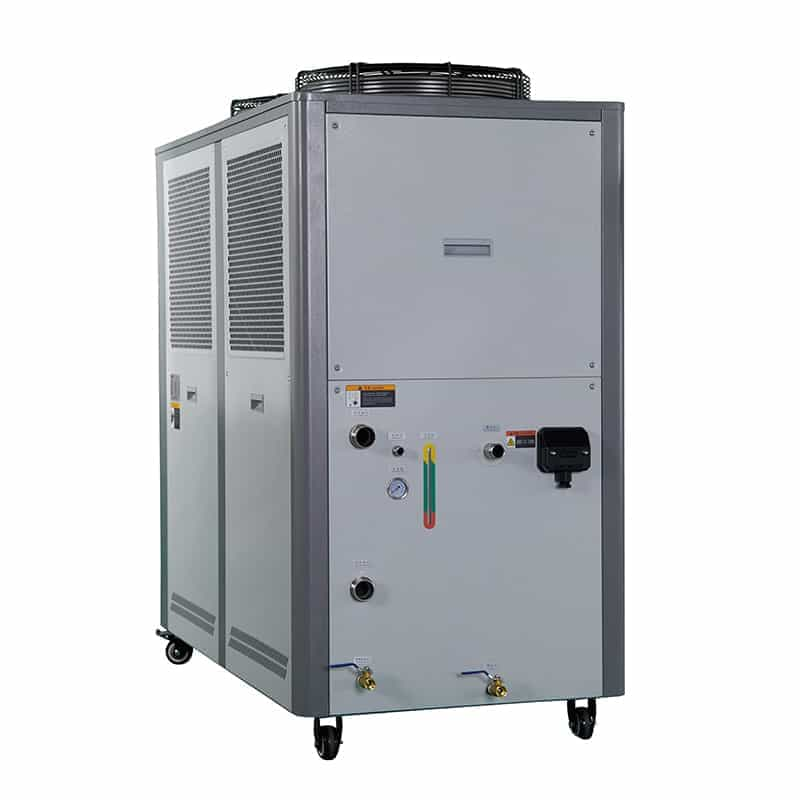
# High-Precision Industrial Chillers Sales: Market Trends and Growth Opportunities
## Introduction
The demand for high-precision industrial chillers has been steadily increasing across various industries, driven by the need for efficient temperature control in manufacturing processes. These advanced cooling systems play a critical role in maintaining optimal operating conditions for sensitive equipment and processes, ensuring product quality and operational efficiency.
## Current Market Trends
Growing Adoption in High-Tech Industries
The semiconductor, pharmaceutical, and biotechnology sectors are leading the adoption of high-precision chillers. These industries require extremely stable temperature conditions for their manufacturing processes, where even minor fluctuations can affect product quality.
Energy Efficiency Focus
Manufacturers are increasingly prioritizing energy-efficient models as companies seek to reduce operational costs and meet sustainability goals. Modern high-precision chillers now incorporate advanced technologies like variable speed compressors and intelligent control systems.
Customization and Modular Designs
The market is seeing a shift toward customizable and modular chiller systems that can be tailored to specific industrial applications. This flexibility allows businesses to scale their cooling capacity as needed.
## Key Growth Drivers
Expansion of Data Centers
The rapid growth of data centers worldwide is creating significant demand for precision cooling solutions. High-precision chillers are essential for maintaining optimal server room temperatures and preventing equipment overheating.
Advancements in Manufacturing Technologies
Emerging manufacturing technologies like 3D printing and laser processing require precise temperature control, driving the need for sophisticated chiller systems with tight temperature tolerances.
Stringent Quality Standards
Increasingly strict quality regulations in industries such as pharmaceuticals and food processing are mandating the use of high-precision temperature control equipment to ensure product consistency and safety.
## Regional Market Analysis
Asia-Pacific Dominance
The Asia-Pacific region currently leads in high-precision industrial chiller sales, fueled by rapid industrialization in China, India, and Southeast Asian countries. The region’s growing electronics manufacturing sector is a particularly strong driver.
North American Market
North America maintains a strong position in the market, with significant demand coming from the pharmaceutical, biotechnology, and data center sectors. The region is also at the forefront of technological innovation in chiller systems.
European Growth
Europe is experiencing steady growth, particularly in Germany and other manufacturing-intensive countries. The region’s focus on energy efficiency and environmental regulations is shaping product development and adoption patterns.
## Future Opportunities
Integration with IoT
The incorporation of IoT capabilities into high-precision chillers presents significant growth opportunities. Smart chillers with remote monitoring and predictive maintenance features are gaining traction in the market.
Green Refrigerants
Development of chillers using environmentally friendly refrigerants aligns with global sustainability trends and presents opportunities for manufacturers to differentiate their products.
Emerging Applications
New applications in renewable energy systems, electric vehicle battery production, and advanced materials processing are creating additional demand for precision cooling solutions.
## Conclusion
The high-precision industrial chillers market is poised for continued growth as technological advancements and industrial requirements drive demand. Companies that can offer energy-efficient, customizable, and smart chiller solutions will be well-positioned to capitalize on the expanding opportunities in this sector. As industries continue to prioritize precision manufacturing and sustainable operations, the importance of advanced cooling systems will only increase in the coming years.